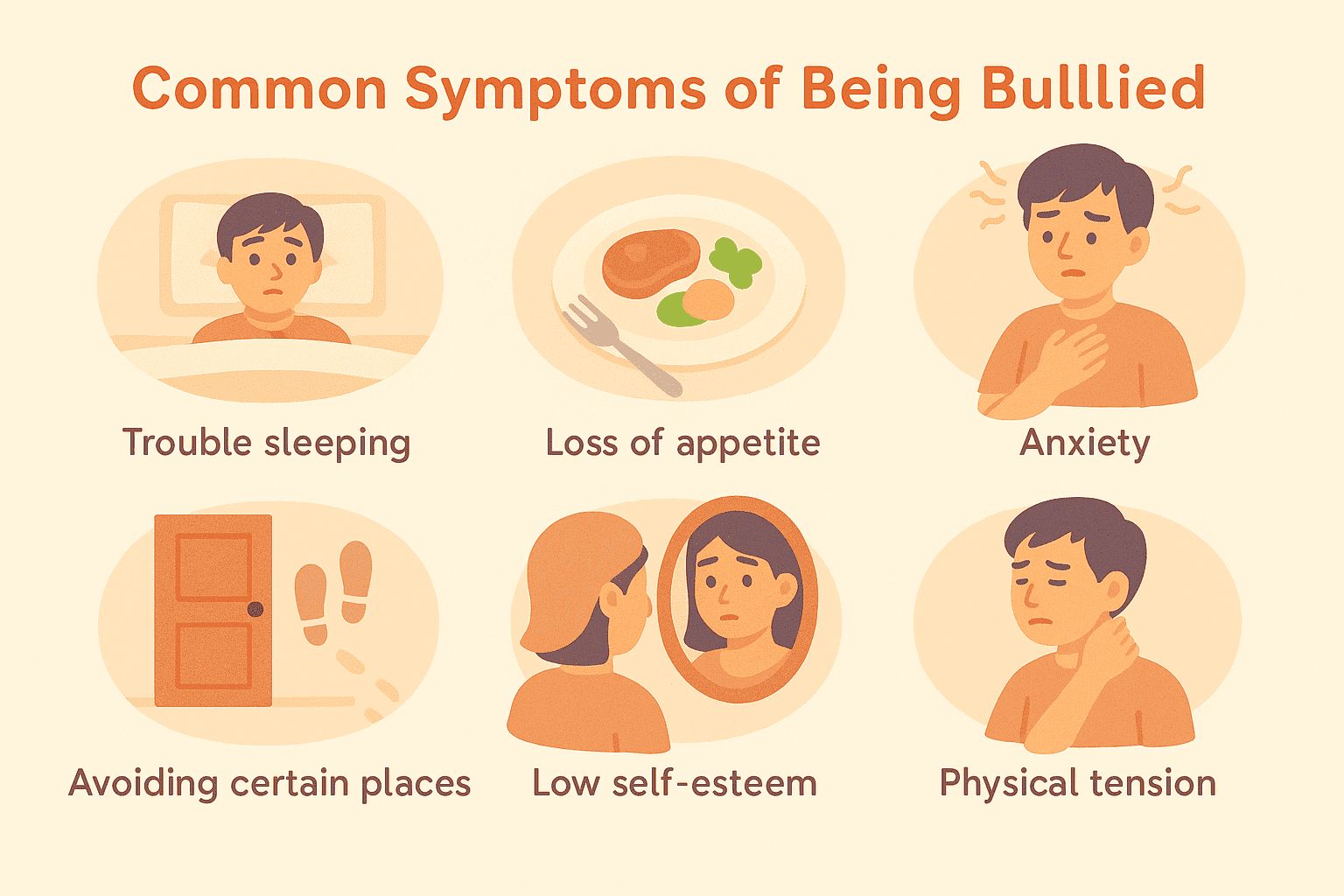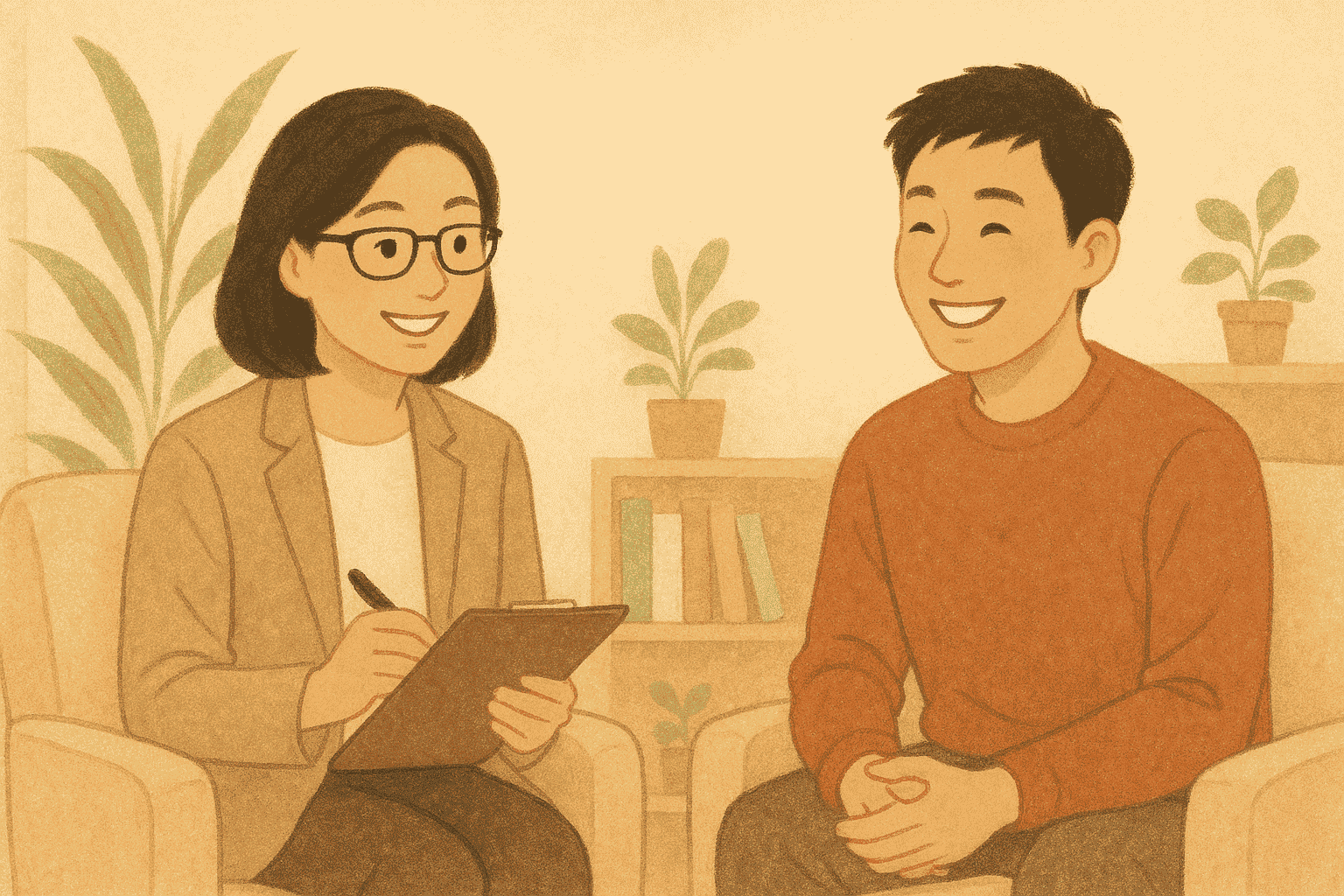Healthy Ways to Cope with Stress from Bullying: A Therapist’s Guide

Bullying—whether it happens at school, in the workplace, online, or even within a family—can leave deep emotional marks. As a therapist, I’ve worked with clients who describe the experience as more than just “unpleasant”—it’s exhausting, isolating, and can shake the foundation of how you see yourself.
If you’ve been on the receiving end of repeated belittling, intimidation, or exclusion, you know it’s not as easy as “just ignoring it.” Over time, bullying can lead to anxiety, self-doubt, and physical symptoms like headaches, poor sleep, or constant tension. That’s why finding healthy ways to cope with stress from bullying is so important for your well-being and recovery.
Step One: Create Emotional Safety
The first step in coping with bullying is to give yourself permission to acknowledge the harm. Many people minimize their experiences, thinking, “It’s not that bad” or “I should just toughen up.” But validation matters—your feelings are real.
Creating emotional safety may involve:
- Talking to a trusted friend or family member who listens without judgment.
- Journaling about your experiences so you can process them privately.
- Seeking professional support where your story is believed and respected.
Step Two: Protect Your Boundaries
One of the healthy ways to cope with stress from bullying is learning to set clear boundaries. This might mean:
- Limiting contact with the person (or people) causing harm.
- Blocking or muting them on social media.
- Avoiding situations where you know you’ll be alone with them.
If direct confrontation isn’t safe, focus on controlling what you can—your exposure to harmful interactions and your own internal responses.

Step Three: Practice Nervous System Regulation
Bullying can keep your body in a constant state of fight, flight, or freeze. To counter this, use grounding techniques that help bring your nervous system back to balance. Clients often find relief from:
- Breathing exercises: Slow, deep breaths in through the nose, out through the mouth.
- Progressive muscle relaxation: Tense and release each muscle group from head to toe.
- Mindfulness practices: Noticing what you see, hear, and feel in the moment without judgment.
Even a few minutes of these daily can lower physical tension and emotional overwhelm.
Step Four: Rebuild Your Sense of Self
Repeated bullying can chip away at self-esteem. That’s why one of the most important healthy ways to cope with stress from bullying is to reconnect with your strengths and values.
- Make a list of your achievements—big or small.
- Surround yourself with people who remind you of your worth.
- Engage in activities that make you feel competent and joyful.
This is not about pretending the bullying didn’t happen—it’s about reminding yourself that it doesn’t define you.
Step Five: Seek Supportive Communities
Isolation can make the effects of bullying worse. Finding spaces where you feel accepted can help heal the loneliness that often follows. Support groups, hobby clubs, volunteer work, or online communities (with safe moderation) can provide connection and encouragement.
In therapy, I often help clients identify what kind of environment feels safe for them and how to slowly reintroduce trust in others. Healing happens faster when you’re not doing it alone.

Step Six: Know When to Get Professional Help
If the bullying has led to persistent anxiety, depression, panic attacks, or thoughts of self-harm, please seek professional help as soon as possible. Therapy offers a space to:
- Process the hurt in a safe, structured way.
- Learn personalized coping strategies.
- Rebuild resilience and self-worth.
You don’t have to wait until things feel “bad enough” to reach out—early support can make a huge difference.
Final Thoughts
Bullying is not a sign of weakness on your part—it’s a harmful behavior that can affect anyone. Finding healthy ways to cope with stress from bullying isn’t about ignoring what happened; it’s about protecting your mental health, reclaiming your voice, and building a life where you can thrive.
If you’re struggling, know this: you don’t have to face it alone. Together, we can work through the impact, strengthen your resilience, and help you feel safe and confident again.
If you’re ready to take the next step, reach out today. Let’s talk about what’s been happening and explore ways to move forward—on your terms, at your pace.